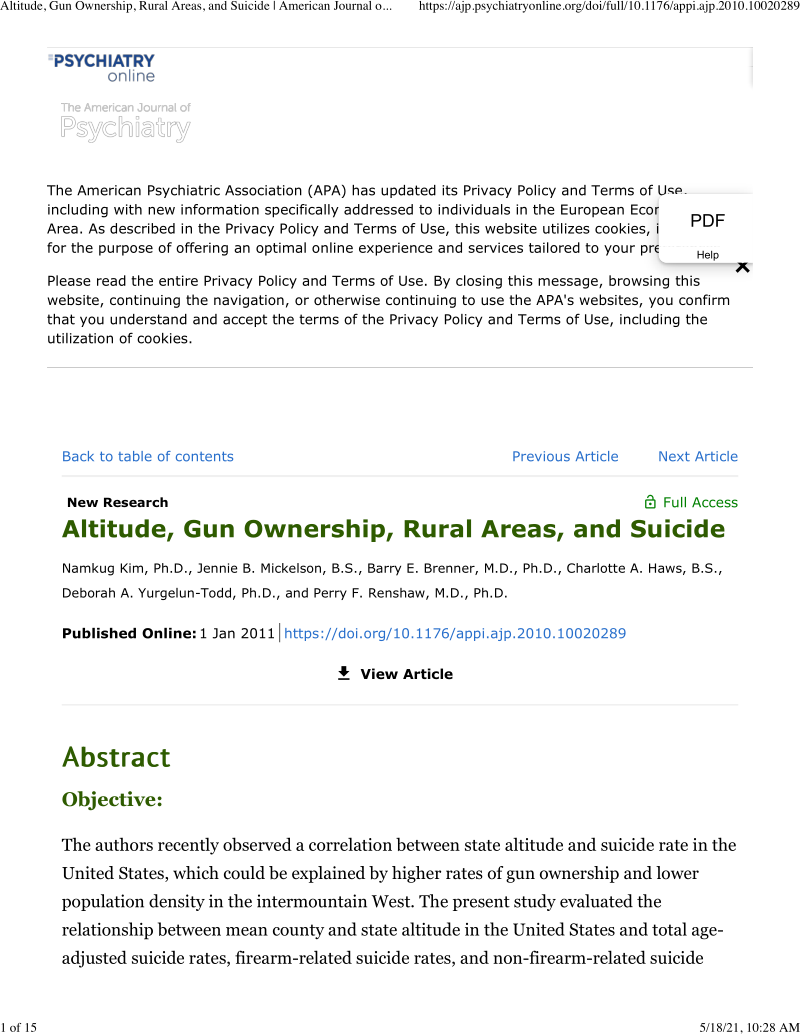Research paper published in American Journal of Psychiatry on suicide, elevation and gun ownership.
- Type
- Academic / Technical Report
- Source
- Namkug Kim Non-LDS
- Hearsay
- DirectSecondary
- Reference
Namkug Kim et al., "Altitude, gun ownership, rural areas, and suicide," American Journal of Psychiatry 168, no. 1 (2011): 49-54
- Scribe/Publisher
- American Journal of Psychiatry
- People
- Namkug Kim
- Audience
- General Public
- Transcription
Abstract
Objective:
The authors recently observed a correlation between state altitude and suicide rate in the United States, which could be explained by higher rates of gun ownership and lower population density in the intermountain West. The present study evaluated the relationship between mean county and state altitude in the United States and total age-adjusted suicide rates, firearm-related suicide rates, and non-firearm-related suicide rates. The authors hypothesized that altitude would be significantly associated with suicide rate.
Method:
Elevation data were calculated with an approximate spatial resolution of 0.5 km, using zonal statistics on data sets compiled from the National Geospatial-Intelligence Agency and the National Aeronautics and Space Administration. Suicide and population density data were obtained through the Centers for Disease Control and Prevention (CDC) WONDER database. Gun ownership data were obtained through the CDC's Behavioral Risk Factor Surveillance System.
Results:
A significant positive correlation was observed between age-adjusted suicide rate and county elevation (r=0.51). Firearm (r=0.41) and non-firearm suicide rates (r=0.32) were also positively correlated with mean county elevation.
Conclusions:
When altitude, gun ownership, and population density are considered as predictor variables for suicide rates on a state basis, altitude appears to be a significant independent risk factor. This association may be related to the effects of metabolic stress associated with mild hypoxia in individuals with mood disorders.
- BHR Staff Commentary
- Citations in Mormonr Qnas
The B. H. Roberts Foundation is not owned by, operated by, or affiliated with the Church of Jesus Christ of Latter-day Saints.

